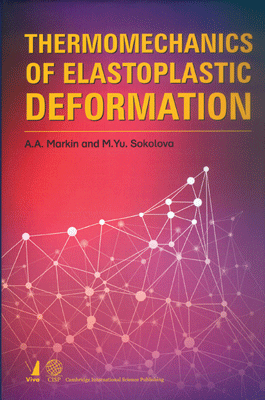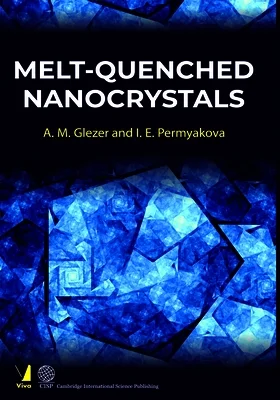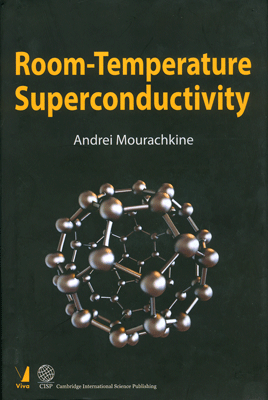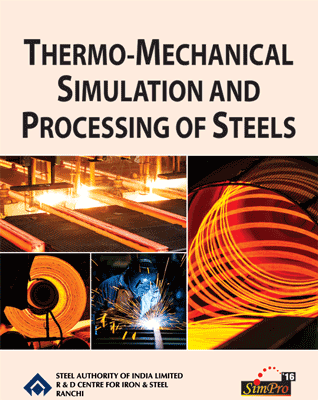Thermomechanics of Elastoplastic Deformation
Thermomechanics of Elastoplastic Deformation
₹1,525.50 ₹1,695.00 Save: ₹169.50 (10%)
Go to cartISBN: 9789385919220
Bind: Hardbound
Year: 2016
Pages: 334
Size: 153 x 229 mm
Publisher: Cambridge International Science Publishing
Published in India by: Viva Books
Exclusive Distributors: Viva Books
Sales Territory: India, Nepal, Pakistan, Bangladesh, Sri Lanka
Description:
In this monograph the authors used the thermo-mechanical approach to focus on processes of reversible and irreversible equilibrium deformation of isotropic and anisotropic solids. The presented models can be generalized for the case of finite deformations in the construction of images in spaces of nonholonomic measures. Formulation of associated boundary value problems of solid mechanics in variational form, the issues of non-uniqueness and stability of finite deformation processes are also discussed.
Entries included:
- Kinematic and dynamic equations of motion of the deformed solid
- Fundamentals of thermomechanics of equilibrium processes
- Thermomechanics of reversible processes, partial postulate of isotropy for anisotropic materials
- Thermomechanics of irreversible equilibrium deformation
- Variational formulation of thermomechanical problems, non-uniqueness and stability of finite deformation processes
- Appendix A. Six-dimensional vector images of symmetric tensors
- Appendix B. Six-dimensional images of the fourth-rank tensor
- Appendix C. Isotropic tensors of the second and fourth rank
- Appendix D. Generating elements of symmetry groups in the six-dimensional space
Target Audience:
Students and academicians of Physics, materials sciences.
Contents:
Introduction
Chapter 1: Kinematic and dynamic equations of motion of the deformed solid • The theory of deformation • The law of motion of the continuum • Kinematics of the infinitesimal particle of the material space • Description of the deformation of a material particle • Speed characteristics of continuum motion • Differentiation of various types of tensors with respect to time • Non-holonomic strain measures • Euler's approach to the description of the kinematic characteristics • The theory of stress • Interactions between particles of continuum, the stress tensor • Stress tensors used in the non-linear theory • Stress distribution along the edges of the cube • The principal axes and principal values of the symmetric stress tensor • The system of invariants associated with the expansion in octahedral basis • The system of invariants associated with the areas of maximum tangential stresses • Dynamics of motion of continuous medium • Equations of motion of the continuous medium in the local form • Equations of motion in variational forms • The continuity equation • The theorem of the change of kinetic energy • Description of the elementary work of the internal forces and stress power
Chapter 2: Fundamentals of thermomechanics of equilibrium processes? Equilibrium thermomechanical processes • Conditions of thermomechanical equilibrium of the medium • Principle of thermomechanical definability • The principle of material equality of adiabatic processes, the reaction of the medium to uniform motion • Differentiation of the true stress tensor in time • The general postulate of isotropy for equilibrium processes • The laws of thermomechanics • The law of variation of internal energy • The law of entropy change in equilibrium processes • Thermomechanical potentials, restrictions on dissipation production • Conditions of stability of equilibrium states • Description of the properties of anisotropic materials • Symmetry groups of anisotropic materials • Invariant tensor bases and systems of algebraic invariants
Chapter 3: Thermomechanics of reversible processes, partial postulate of isotropy for anisotropic materials? Thermomechanics of reversible deformation. Finite strains in anisotropic media • Construction of thermomechanical models of reversible processes • Tensor-linear relationship between stress and finite strains • Stresses in a transversely isotropic material • Hooke's law and elastic eigenstates • Properties of linearly elastic materials. The canonical representation of elasticity tensors in the six-dimensional space • The concept of elastic eigenstates of materials • Elastic eigenstates of the isotropic material • Elastic eigenstates of anisotropic materials • Determination of the type of initial elastic anisotropy of the material • Partial Il?yushin postulate and its generalization • Formulation of the partial Il?yushin isotropy postulate • Formulation of the partial postulate in the case of finite strains of initially isotropic materials • The conditions of applicability of the partial postulate of isotropy at finite strains • Generalization of the partial postulate for initially anisotropic media • Nonlinear relations of thermoelasticity and the partial postulate of isotropy • Model of anisotropic thermoelasticity in the framework of the partial postulate of isotropy • Quasi-linear relations for isotropic materials • Defining relations that take into account the possibility of deviation of the properties of the material from the partial isotropy postulate • Methods of processing experiments based on the finite deformation of a solid cylinder • Description of the stress-strain state of the cylinders when loaded by axial force and torque • The asymptotic solution of the problem of torsion of a solid cylinder • The program of experiments to determine the constants in defining relations (10.55) • Investigation of nonlinear effects in torsion of a cylinder
Chapter 4: Thermomechanics of irreversible equilibrium deformation • Elastoplastic deformation of initially isotropic materials • Basic relations that determine the behaviour of the body in equilibrium irreversible processes • Terms of reversible and irreversible deformation, reversibility surface • Equilibrium deformation of the initially isotropic material • Thermomechanics of equilibrium processes in the strain space • Variant of the thermomechanical model of equilibrium irreversible process • Description of irreversible deformation in the stress space • Specification of the form of defining relations • Analysis of deformation anisotropy • Residual stresses in a thick-wall cylinder • Irreversible equilibrium processes in anisotropic materials • Construction of thermomechanical basis in anisotropic materials • The variant of the flow theory • Variant of the deformation theory of plasticity • Changes of the properties of anisotropic materials under plastic deformation • Description of deformation anisotropy • Changing the orientation of the principal axes of anisotropy in finite homogeneous deformation • Changing the orientation of the axes of anisotropy of biaxial deformation • Changing the orientation of the axes of anisotropy in simple shear
Chapter 5: Variational formulation of thermomechanical problems, non-uniqueness and stability of finite deformation processes? Statement of thermomechanical problems in the reference configuration • Variational forms of the equations of motion and heat conductivity • Formulation of the coupled thermoelasticity problem in the reference configuration • Formulation of thermomechanical problem of finite deformation of anisotropic elastoplastic solids • Stability in finite deformation • Stability and uniqueness of finite deformation processes • Construction of defining relations in the neighbourhood of the inflection point of the deformation path • Uniqueness and stability in the homogeneous subcritical state • The non-uniqueness and instability with respect to perturbations in a given direction
Appendix A. Six-dimensional vector images of symmetric tensors
Appendix B. Six-dimensional images of the fourth-rank tensor
Appendix C. Isotropic tensors of the second and fourth rank
Appendix D. Generating elements of symmetry groups in the six-dimensional space
Literature
Index







